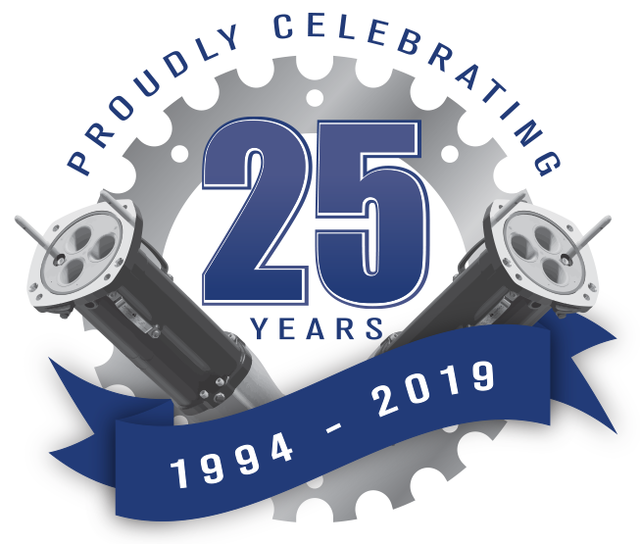TAXATION
How effective resource taxation could be key to the Covid-19 economic recovery
The Future of Resource Taxation is a new initiative aiming to improve the way that governments collect revenue from the mining sector. Matthew Hall looks at the problems with existing methods of taxing mining companies, and how resource taxation can be improved.


I
n the midst of the Covid-19 crisis, the World Bank forecast that almost 93% of countries are expected to face recessions in 2020, with economic headwinds coming from multiple areas – be that pressure on healthcare systems, the loss of international trade and tourism, or mounting debt as governments pump unprecedented amounts of cash into expensive support measures. And with this economic crisis intrinsically tied to a generation-defining public health crisis, there are fears that a coronavirus resurgence towards the end of 2020 could further incapacitate an already limping world economy.
Across the globe, industry bodies for the resource sector have been making the case for their industry’s importance in the post-pandemic economic recovery. Over the summer, the Minerals Council South Africa identified eight “critical questions” that had to be addressed to support the country’s mining sector and allow the industry to play a key role in South Africa’s economic recovery.
At the time, Minerals Council South Africa CEO Roger Baxter said: “If the right actions are taken in answering all these questions, it could result in an additional $3.6bn in mineral sales, $0.3bn additional tax revenues, 70,000 jobs saved, and an additional 26,000 mining jobs and 47,000 indirect jobs created by 2024. These steps require a co-operative and united approach by all industry stakeholders if we are to succeed.”
But while bold proposals for mining investment may help the economic fortunes of mining companies, there are concerns that such investments may not bear fruit for communities that are host to mines, or even for the governments that permit them. Enter the Future of Resource Taxation, an initiative from the Intergovernmental Forum on Mining, Minerals, Metals and Sustainable Development (IGF), in partnership with the African Tax Administration Forum (ATAF), that aims to improve the ways governments collect revenue from the mining sector.
More than half of the country’s coal mines are managed by pro-Russian separatist militia.Credit: DmyTo/Shutterstock.
More than half of the country’s coal mines are managed by pro-Russian separatist militia.
Credit: DmyTo/Shutterstock.
The Future of Resource Taxation project
While the mining industry may indeed have a role to play in job creation and stimulating economic activity in the coming months and years, methods of resource taxation have taken on renewed importance - particularly in developing countries that need to rebuild public finances post-Covid-19.
When the Future of Resource Taxation initiative launched in July 2020, IGF lead for tax and extractives Alexandra Readhead said: “The goal is to re-evaluate and improve the fiscal regimes governing the mining industry, which tend to be complex and difficult for governments to administer, especially in developing countries.”
The IGF said that the Future of Resource Taxation initiative “will deliver timely recommendations for the next generation of mining fiscal policies that will allow for the equitable sharing of mining's benefits and engender trust between industry, governments, and civil society.”
“Many resource-rich developing countries are concerned that they are not receiving a fair share of the fiscal benefits.”
“Since 2016, IGF has been working with member countries to address the risk of tax base erosion and profit shifting in the mining sector, through research, legal and policy advice, capacity building, and tax audit assistance,” Readhead explained. “The results have been positive so far. However, the challenges remaining are immense. Many resource-rich developing countries are concerned that they are not receiving a fair share of the fiscal benefits from their mineral wealth.”
According to Readhead, the current system for taxing mining companies is heavily weighted towards profit-based taxes, such as corporate income tax or taxes on economic rent. These can be difficult to collect, and can be subject to manipulation through various malpractices. A 2018 report authored by Readhead also outlined some of the difficulties resource-rich developing countries have in monitoring the value of mineral exports, which can lead to governments losing out on revenue from royalties and income taxes.
“Our goal is to take stock of where we are and consider alternative futures; futures that might challenge long-held principles of international taxation.”

AusProof is celebrating 25 years of business in Australia in 2019.
The importance of effective resource taxation
An abundance of mineral resources can often be seen as something of a golden ticket for developing countries, with exploitation of resources providing the opportunity to increase government revenue as well as economic activity. But Readhead said it’s an “unfortunate reality… that most developing countries have struggled to maximise the expected revenues from the sector due to a range of challenges, both internal and external, which have in turn constrained public budgets.”
A survey of mining industry decision-makers by law firm White & Case, published in July 2020, found that 46% of respondents saw increased taxation as the way that resource nationalism is most likely to manifest in the wake of Covid-19, with 50% of respondents identifying Africa as an anticipated hotspot for such policies.
While proponents of resource nationalism can often find themselves at odds with the interests of multinational mining companies – perhaps most prominently illustrated by former Bolivian President Evo Morales’ policies around the country’s lithium resources – a route to fairer, more effective taxation may strike a balance between mining companies and national governments.
“There have been instances of overly generous tax incentives granted to mining companies.”
Readhead said that the issue is not solely limited to companies pursuing aggressive tax avoidance practices, that government policy has hindered economic development: “There have been instances of overly generous tax incentives granted to mining companies that have substantially deferred or eroded taxes... Contract transparency, and proper oversight of tax expenditure is critical to ensure that any incentives granted are necessary, and efficient and effective.”
The IGF said that these issues can lead to disputes between mining companies and governments, often in “public clashes that harm the reputations of all stakeholders.”
Readhead said that government concerns over low revenue collection from the resource sector has, in some cases, “led to tax disputes that have both hurt host countries’ credibility with investors and contributed to public mistrust of the sector as a whole”.

Moving towards effective resource taxation
There are two burgeoning areas in the world of mining that present challenges and opportunities for effective resource taxation, and may prompt a rethink of how minerals are taxed. The first is the growing digitisation of mines, with companies increasingly investing in smart technologies for mine sites to reduce costs and improve efficiency.
Despite potential advantages to mining companies, the rise of automation and digitisation in mining could be a problem for host countries. IGF director Greg Radford and ATAF executive secretary Logan Wort, writing for the Financial Times, explained: “The industry is quickly embracing automation, big data, and artificial intelligence, which potentially disrupt economic linkages with host countries as mines opt to employ machinery and offshore computer engineers over local workers. As technology transforms mining operations, tax policies need to adapt so mining’s benefits can be equitably shared with host countries.”
Another opportunity to revamp resource taxation may be found in the growing demand for environmentally sustainable mines, driven both by public pressure on resource companies as well as industrial customers, such as electric vehicle producers, who want to be seen to be part of an ethically responsible supply chain.
“As technology transforms mining operations, tax policies need to adapt.”
According to Readhead, this “represents a new opportunity for countries to put in place the right fiscal policies to attract mining investments, while ensuring that mining projects contribute much-needed public revenue and do not exacerbate environmental or social pressures.”
In terms of reforms to resource taxation, there are a number of possible routes currently being explored around the world. Some countries are increasing royalty rates on valuable minerals, particularly those with applications in renewable energy technologies, while others are introducing sliding scale royalties so that the government’s take increases as prices increase.
Readhead said that the preference for royalties partly stems from frustrations with corporate income tax failing to deliver, as well as administrative simplicity. Other avenues being considered include governments increasing their equity stakes in mines or production sharing regimes, whereby the host government takes a share of the minerals in lieu of taxes or royalties.
The IGF initiative is not aiming to create a single standard for how governments should collect revenues from the mining sector, but rather to create a space where the issue can be constructively challenged and discussed by governments, citizens, and industry.

AusProof is celebrating 25 years of business in Australia in 2019.
